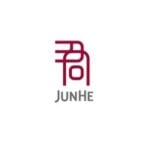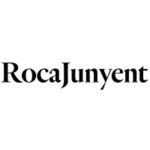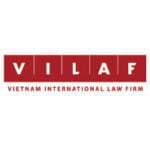-
Please briefly describe the regulatory framework and landscape of both equity and debt capital market in your jurisdiction, including the major regimes, regulators and authorities.
Romania’s capital market framework is mostly influenced by EU regulations, resulting in a legal environment that aligns closely with broader EU standards. This legislative convergence of capital market rules is beneficial, ensuring consistency and transparency across Member States.
Securities in Romania are traded primarily on the Bucharest Stock Exchange and the market consists of two principal segments: the Regulated Market and the MultilateralTrading System (“MTS”). The MTS, which is operated and managed by the Bucharest Stock Exchange, allows to bring the attention of the investors to the sector of dynamic Small and Medium Enterprises with development potential, aiming to facilitate and stimulate the development of companies by providing them with access to opportunities of financing through the capital markets. The stock market segment of the MTS in Romania is called AeRO in Romania (“AeRO”), and companies are admitted to trading on the basis of a presentation document, prepared with the support of an authorized consultant who will provide expert assistance during the listing procedure and for at least 12 months after admission.
The Regulated Market is subject to comprehensive legal regulation, while the MTS, although less stringently regulated, still adheres to key legal requirements. The Bucharest Stock Exchange stands as Romania’s foremost stock exchange, serving as the main trading venue for both equities and bonds.
The main laws governing Romania’s capital markets include Capital Market Law No. 297/2004 (“Law No. 297/2004”), Law No. 24/2017 on Issuers of Financial Instruments and Market Operations (“Law No. 24/2017”) and Law No. 126/2018 on markets in financial instruments (“Law No. 126/2018”). Law No. 24/2017 sets out detailed regulations for the transparency of listed companies, disclosure requirements, and measures against market abuse, aligning with the EU’s Transparency Directive and Market Abuse Regulation (MAR), while Law No. 126/2018 addresses several key areas related to financial instruments and services, setting out the conditions for authorizing and operating regulated entities, establishing rules for investor protection, details the requirements for data reporting services, and outlining the processes for clearing and settling transactions involving financial instruments. Additionally, the Financial Supervisory Authority (“FSA”) issues specific regulations and guidelines that complement primary legislation, covering aspects such as prospectus requirements, reporting standards and operational rules for market participants.
Securities to be traded on a Regulated Market must be officially admitted to trading, a process managed by the Bucharest Stock Exchange. Admission requires the drafting of a comprehensive securities prospectus, having own capital or an anticipated market capitalization of at least 1 million euros, maintaining a minimum free-float of 25%, operating for at least three years prior to the admission request, and preparing and disclosing financial statements for this period.
Shares are predominantly traded on the Regulated Market, with debt securities also actively traded, though to a lesser extent. Public offerings of securities, including shares and bonds, generally necessitate the publication of a securities prospectus. This document is thorough, meeting extensive content criteria, and specific requirements can vary depending on the nature of the securities offered.
The most important regulatory authority for the Romanian capital market is the Financial Supervisory Authority. The FSA oversees the securities market, including the approval and review of securities prospectuses, and the regulation of market participants. It also ensures the stability, competitiveness and smooth functioning of financial instruments markets, while the Bucharest Stock Exchange, in cooperation with the FSA, ensures compliance with regulatory standards and promotes market integrity and investor protection.
-
Please briefly describe the common exemptions for securities offerings without prospectus and/or regulatory registration in your market.
There are certain exemptions allowing for securities offerings without the need for a prospectus or regulatory registration in Romania, in line with both EU regulations and national laws, which are designed to facilitate more efficient capital raising under specific conditions.
As the FSA Regulation No. 5/2018 on issuers of financial instruments and market operations (“FSA Regulation No. 5/2018”) expressly refers to the provisions of Regulation (EU) 2017/1129 of the European Parliament and of the Council on the prospectus to be published when securities are offered to the public or admitted to trading on a regulated market, and repealing Directive 2003/71/EC (“EU Prospectus Regulation“), it follows that the obligation to publish a prospectus is waived to the same types of public offers of securities as those set out in the provisions thereof.
Thus, one common exemption applies to small offerings. If the total consideration for the securities in the European Union does not exceed 1 million euros, calculated over a period of 12 months, the offering is exempt from the requirement to publish a prospectus.
Private placements represent another exemption, where offers made to fewer than 150 natural or legal persons per member state, other than qualified investors, do not require a prospectus. This exemption allows issuers to target a limited number of investors without extensive regulatory requirements.
Additionally, offers made exclusively to qualified investors are exempt from the prospectus requirement. Qualified investors include professional clients or eligible counterparties as defined under MiFID II, typically comprising financial institutions, large companies, and institutional investors.
High minimum investments also benefit from an exemption. Securities offerings where the minimum consideration per investor or the minimum denomination per unit of the securities is at least 100,000 euros are exempt. This provision caters to high-net-worth individuals or entities capable of making substantial investments.
Employee share schemes provide another exemption. Securities offered, allotted or to be allotted to existing or former directors or employees by their employer or an affiliated undertaking are also exempted from the prospectus requirement, provided that the said securities are of the same class as the securities already admitted to trading on the same regulated market and that a document is made available containing information on the number and nature of the securities and the reasons for and detail of the offer or allotment. This supports employee incentive programs.
These exemptions, outlined in the EU Prospectus Regulation and incorporated into Romanian law through local regulations and the oversight of the FSA, aim to balance investor protection with facilitating capital raising for issuers.
-
Please describe the insider trading regulations and describe what a public company would generally do to prevent any violation of such regulations.
Insider trading regulations are primarily governed by Law No. 24/2017 and the Regulation (EU) No. 596/2014 of the European Parliament and of the Council on market abuse and repealing Directive 2003/6/EC of the European Parliament and of the Council and Commission Directives 2003/124/EC, 2003/125/EC and 2004/72/EC (“MAR”), and are enforced by the FSA. These regulations prohibit the use of inside information and aim to protect investors through enhanced transparency in financial markets and combating market abuse.
Law No. 24/2017 defines “inside information” as information which has not been made public, and relates, directly or indirectly, to one or more issuers or one or more financial instruments and which, if it were made public, would be likely to have a significant effect on the price of those financial instruments or on the price of related derivative financial instruments. According to the provisions of this law, insider trading occurs when a person holds inside information and uses that information to acquire or dispose of financial instruments to which that information relates, on his own behalf or on behalf of a third party, directly or indirectly.
Regarding prevention, a particularly important role in these situations can be played by the issuer’s own rules of conduct concerning the regime of transactions carried out by insiders, which the listed company can adopt, thus preventing situations in which insiders could trade using inside information or even just situations where there could be suspicions in this regard. In practice, these rules of conduct may cover a series of restrictions, prohibitions, notifications imposed on insiders, or accepted practices related to their trading activity, such as notifications or approvals from designated persons, exceptions related to certain types of operations permitted at any time, prohibitions of any types of operations that involve the acquisition or disposal of securities issued by the issuer in question, during certain periods, accepted trading practices described by these rules and which delimit the moment of the trading decision, the moment of the order execution and the moment when the respective person came into possession of the inside information.
-
What are the key remedies available to shareholders of public companies / debt securities holders in your market?
Shareholders have the right to equal treatment within the same class of securities, be informed, and participate and vote in the General Meeting of Shareholders, thus contributing to the adoption of a decision on which, in practice, the return on investment in those shares depends. Along with this right, they also have the right to elect and be elected to the company’s governing bodies.
Similarly, shareholders have the right to challenge resolutions of the General Meetings of Shareholders, and shareholders with more than 5% may also propose points on the agenda of said meetings.
Each shareholder also has the right to ask questions about the company’s business and the company is obliged to answer questions from shareholders. Companies may formulate a general answer to questions with the same content, and the answer is deemed to be given if the information is available on the company’s website in question-answer format.
Shareholders also have the right to withdraw from the company in certain cases. For example, if the company moves its registered office abroad, changes its form or object of business, merges or splits, shareholders who did not vote in favour of these changes at the General Meeting of Shareholders have the right to withdraw from the company and request that the company buy back the shares held within a maximum of 30 days of the publication of the General Meeting of Shareholders resolution in the Official Gazette of Romania.
-
Please describe the expected outlook in fund raising activities (equity and debt) in your market in 2024.
The Bucharest Stock Exchange (“BSE“) feels there is a promising evolution of the Romanian capital market in 2024, as it has already witnessed a notable increase in the first half of this year, showcasing growth in both equity and debt fundraising activities. In one of its recent statement, the BSE noted the total market capitalization reached an all-time high, reflecting an over 150% increase compared to the same period in the previous year, underscoring the rising investor confidence in the Romanian economy and the attractiveness of Romanian companies for equity investments. This significant rise highlights the growing awareness and participation of retail investors in the Romanian capital market.
Similarly, the BSE noted the debt market has also demonstrated its resilience among global economic uncertainties, remaining a key financing source for companies. Daily liquidity has reached impressive levels, exceeding RON 87 million, indicating a vibrant and dynamic market that efficiently facilitates debt issuance and trading.
These positive developments in both equity and debt fundraising paint an overall optimistic picture for the Romanian capital market in 2024, with anticipated economic growth, improved business environment and heightened investor interest. Ultimatelly, however, the outcome remains difficult to predict with 2024 being an election year in Romania, and Russia waging war in Ukraine, Romania’s neighbour.
-
What are the essential requirements for listing a company in the main stock exchange(s) in your market? Please describe the simplified regime (if any) for company seeking a dual-listing in your market.
The main requirements for a primary listing on the BSE’s (BVB) main market can be grouped as follows:
- offering and issuer related requirements;
- prospectus and transparency requirements; and
- FSA approval.
The issuer must be organised as a joint stock company and its shares must be freely transferable, fully paid up, issued in dematerialised form and registered with the FSA.
Unless otherwise exempted, the issuer must publish a prospectus that is compliant with national rules and regulations and with the applicable EU legislation, i.e. the EU Prospectus Regulation. The prospectus must include relevant information regarding the issuer, its standing, business, finances and shareholding structure, as well as the shares offered for trading, to allow potential investors to reach informed decisions on whether to invest in the company’s shares.
The prospectus must be approved by the FSA. As an exception, in case of issuers already listed in other EU countries, the approval of the prospectus by the national regulator in their home countries allows for passporting with the Romanian FSA (in which case, a simple notification to the FSA and the European Securities and Markets Authority would be sufficient for a primary listing).
-
Are weighted voting rights in listed companies allowed in your market? What special rights are allowed to be reserved (if any) to certain shareholders after a company goes public?
At present, the rule is one share equals one vote, and shares of the same class provide the same rights in line with the principles of fairness and transparency in corporate governance. Having said this, the law does allow cumulative voting when appointing members of the board of directors of an issues which essentially means that each shareholder may allocate to the participant board members a number of votes equal to its shareholding multiplied by the number of administrators that the board will hold.
-
Is listing of SPAC allowed in your market? If so, please briefly describe the relevant regulations for SPAC listing.
We do not have yet particular legislation on Special Purpose Acquisition Companies (“SPACs”). Therefore listing of such a vehicle would follow the same rules for listing in general.
-
Please describe the potential prospectus liabilities in your market.
In Romania, the main legal basis for prospectus liability is found in FSA Regulation No. 5/2018 and Law No. 24/2017, in conjunction with the EU Prospectus Regulation.
Under Article 14 of Law No. 24/2017, the following parties are liable for non-compliance with the legal provisions concerning the reality, accuracy and precision of the information included in a prospectus and any supplement thereto, respectively of the information included in the offer document and any supplement thereto, as well as in the related advertisement, according to the role and responsibilities conferred by law and/or convention, as the case may be, the following:
- the issuer;
- the members of the board of directors, senior management, members of the supervisory board, the management board or other bodies or other equivalent functions of the issuer;
- the offeror, if different from the issuer;
- the members of the board of directors, senior management, members of the supervisory board, the management board or other bodies or other equivalent functions of the offeror;
- the founders, in the case of public subscription;
- the person applying for admission to trading, if different from the issuer or the offeror;
- the guarantor;
- the financial auditor/audit firm that has audited the financial statements, the information of which has been incorporated in the prospectus and only in respect of that information;
- the offer agent or, where applicable, the responsible syndicate member;
- any other person, including the offer intermediaries, who has accepted responsibility in the prospectus for any information, research or valuation inserted or set out in the prospectus. In such case, that person shall be responsible only for the truth, accuracy and fairness of the information, study or valuation expressly stated by that person and only to the extent that the information, study or valuation has been included in the prospectus in the form and context expressly agreed by the responsible person.
The following persons are liable, irrespective of fault, and jointly and severally liable:
- the issuer, if any of the persons referred to in the case at letter (b) of the paragraph above is liable;
- the offeror, if any of the persons referred to in the case at letter (d) of the paragraph above is liable.
However, a person shall not necessarily be responsible for the reality, accuracy and fairness of the information in the prospectus / offer document and announcement solely on the basis that they assisted in a professional capacity during the process of drafting the prospectus/offer document.
The right to compensation must be exercised within 6 months from the date of becoming aware of the deficiency of the prospectus/offer document, but not later than one year after the closing of the public offer.
Furthermore, where an action is brought before a court in Romania concerning information contained in a prospectus which is not drawn up or made available to the public in the Romanian language, the plaintiff investor shall bear the costs of translating the prospectus prior to the commencement of legal proceedings.
-
Please describe the key minority shareholder protection mechanisms in your market.
For the protection of minority shareholders in Romania, several provisions of Law No. 31/1990 and capital market regulations contain important measures. These protections are designed to ensure that minority shareholders are treated fairly and that their rights are not unduly infringed by the majority.
The law provides for both general rights, recognised to any shareholder, such as the general information provided on the occasion of general meetings, and specific rights for shareholders holding a certain percentage of the share capital.
Thus, shareholders holding at least 5% of the share capital have the right to summon a general meeting of shareholders, the right to introduce new items for discussion on the agenda of a general meeting, the right to request additional reports and the right to bring an action on behalf of the company against the directors, managers, members of the management and supervisory board, as well as the auditors or financial auditors.
Overall, these mechanisms collectively ensure that minority shareholders in Romania are adequately protected, promoting fair treatment and preventing the abuse of majority power.
-
What are the common types of transactions involving public companies that would require regulatory scrutiny and/or disclosure?
In Romania, several types of transactions involving public companies require regulatory scrutiny and/or disclosure due to their potential impact on the market and investor interests.
Firstly, significant M&A transactions, including acquisitions, mergers, sales, and the formation of joint ventures, necessitate regulatory attention. These transactions must comply with insider trading laws and require the proper publication of ad hoc announcements to ensure that all material information is promptly disclosed to the public. Additionally, these transactions often need to meet antitrust regulations and foreign direct investment laws, though these requirements apply broadly and are not specific solely to public companies.
Capital measures, such as share or convertible bond issues, also require careful adherence to regulatory standards. These transactions involve detailed disclosure obligations to ensure that investors are fully informed about the terms and potential impact of the new securities. The prospectus for such issuances must be prepared in compliance with both national and EU regulations, to provide comprehensive and accurate information.
Takeover bids and changes of control in public companies are subject to high regulatory scrutiny. FSA oversees these transactions to ensure compliance with mandatory bid rules and transparency requirements. Detailed disclosure about the terms of the takeover, the offeror’s intentions, and the strategic plans post-takeover are mandatory to protect the interests of all shareholders.
Overall, these types of transactions demand rigorous regulatory compliance and thorough disclosure to maintain market integrity and protect investor interests in Romania.
-
Please describe the scope of related parties and introduce any special regulatory approval and disclosure mechanism in place for related parties’ transactions.
In Romania, the main legal basis for related parties transactions is found in FSA Regulation No. 5/2018 and Law No. 24/2017.
Transactions with related parties are subject to specific regulatory scrutiny to ensure transparency and protect the interests of minority shareholders.
The scope of “related parties” is regulated by Article 93 of Law No. 24/2017 and has the meaning given in International Accounting Standards adopted in accordance with Regulation (EC) 1.606/2002 of the European Parliament and of the Council of 19 July 2002 on the application of international accounting standards.
Article 108 of the Law No. 24/2017 sets forth a set of principles applicable when dealing with affiliated parties’ transactions.
When a Romanian public company engages in a transaction with a related party, special regulations apply if the transaction’s economic value exceeds a certain threshold, typically set at a significant percentage (more than 5%) of the company’s total assets as reported in the most recent consolidated balance sheet. This threshold ensures that only substantial transactions require enhanced oversight, but the exact percentage can vary based on specific regulatory updates. Noteworthy, transactions are also retrospectively reviewed if they collectively exceed the 5% threshold in any period of 12 months.
Such significant related party transactions must be approved by the issuer’s management or supervisory board in accordance with procedures which prevent a related party from taking advantage of its position and which provide adequate protection of the interests of the issuer and of shareholders who are not related parties, including minority shareholders. The related party may not participate in approving or voting on the significant transaction involving that related party, failing which the decision taken in breach of that prohibition shall be null and void by decision of the court.
Lastly, issuers must publicly disclose significant related party transactions, following their approval by drawing up and publishing a report, at the latest at the time of their conclusion. This disclosure includes detailed information about the nature, terms, and value of the transaction, as well as the identity of the related parties involved.
-
What are the key continuing obligations of a substantial shareholder and controlling shareholder of a listed company?
In Romania, the main legal basis for substantial holdings liability is found in FSA Regulation No. 5/2018 and Law No. 24/2017.
Articles 71 – 78 of the Law No. 24/2017 provide that, with some exceptions (presented below) where a shareholder acquires or disposes of shares of an issuer which are admitted to trading on a regulated market and to which voting rights are attached, the shareholder is obliged to notify the issuer of the percentage of voting rights he holds as a result of the acquisition or disposal in question when that percentage reaches, exceeds or falls below one of the thresholds of 5%, 10%, 15%, 20%, 25%, 33%, 50% and 75%. Voting rights shall be calculated on the basis of all the shares to which voting rights are attached, even if the exercise thereof is suspended. This information is also provided for all shares belonging to the same class to which voting rights are attached.
Such obligation to notify does not apply to:
- shares purchased solely for clearing or settlement purposes in the ordinary short-term settlement cycle, nor to custodians holding shares in a custodial capacity, provided that such custodians may not exercise the voting rights attached to such shares unless they have received such instruction in writing or by electronic means;
- the acquisition or disposal of a major holding which reaches or exceeds the 5% threshold by a market maker acting in that capacity, unless the market maker meets all of the following conditions: (i) it is authorised to operate as a market maker in accordance with applicable national law; and (ii) it does not intervene in the management of the issuer concerned and does not exercise any influence to cause the issuer to acquire such shares or to support their price;
- voting rights included in the trading book, within the meaning of Article 4(4)(a) of Directive 2004/109/EC (1) point 86 of Regulation (EU) No 575/2013, if: (i) voting rights held in the trading book do not exceed 5%; and (ii) the voting rights attached to the shares held in the trading book are not exercised or otherwise used to intervene in the management of the issuer; or
- voting rights attached to shares acquired for stabilisation purposes in accordance with Regulation (EU) No 596/2014 and Commission Delegated Regulation (EU) 2016/1.052 of 8 March 2016 supplementing Regulation (EU) 596/2014 of the European Parliament and of the Council as regards regulatory technical standards for conditions applying to buy-back programmes and stabilisation measures, provided that the voting rights attached to those shares are not exercised or otherwise used for the purpose of intervening in the management of the issuer.
Additional guidance is available in the foregoing articles regarding method of calculation of holdings, substance of the notification etc.
Furthermore, as per Articles 39 – 41 of Law No. 24/2017 a person who, as a result of acquisitions by himself or by persons with whom he acts in concert, holds securities issued by an issuer which, when added to his previous holdings or those of persons with whom he acts in concert, give him, directly or indirectly, more than 33% of the voting rights in the issuer, is required to make a public offer (a mandatory tender offer) to all holders of securities, at a fair price and covering all their holdings, as soon as possible but not later than two months after reaching that holding.
Until the public offer has been made, the voting rights attaching to securities exceeding the threshold of 33% of the voting rights in the issuer shall be suspended and the shareholder concerned and the persons with whom it acts in concert may not acquire shares in the same issuer by any other means.
The foregoing obligation to carry out a takeover offering does not apply where the position representing more than 33% of the voting rights in the issuer has been acquired as a result of an exempt transaction.
An “exempt transaction” means the acquisition of such a position:
- as part of the privatization process;
- through the acquisition of shares from the Ministry of Finance, or other legally entitled entities in the procedure of enforcement of budgetary claims;
- as a result of transfers of shares between the parent company and its subsidiaries or between subsidiaries of the same parent company;
- following a voluntary takeover bid made to all the holders of the securities in question and covering all their holdings.
If the acquisition of the position representing more than 33% of the voting rights in the issuer is carried out unintentionally, the holder of such position shall have one of the following alternative obligations, to be carried out within three months from the acquisition of that position:
- to make a public offer;
- to dispose of a number of shares corresponding to the loss of the unintentionally acquired position, where such acquisition is deemed unintentional if it is the result of transactions such as: (i) a reduction of the capital by the repurchase by the company of its own shares followed by their cancellation, (ii) exceeding the threshold as a result of the exercise of pre-emptive rights, subscription or conversion of rights originally allotted, and the conversion of preference shares into ordinary shares, or (iii) merger/division or succession.
-
What corporate actions or transactions require shareholders’ approval?
One of the primary actions needing shareholder approval is capital measures, such as capital increases and the issuance of convertible bonds. Typically, shareholders grant these approvals through general authorizations which establish a maximum value or thresholding (see Article 86 of the Law No. 24/2017), allowing the company’s board of directors to implement specific capital measures later without needing another General Meeting of Shareholders resolution.
Additionally, as per Article 91 of Law No. 24/2017, acts of acquisition, disposal, exchange or pledge of assets of the category of fixed assets of the issuer, the value of which exceeds, individually or cumulatively, during a financial year, 20% of the total fixed assets, less claims, may be concluded by the directors or managers of the issuer only after prior approval by the extraordinary general meeting of shareholders.
Leases of tangible assets for a period exceeding one year, the individual or aggregate value of which vis-à-vis the same co-contractor or persons involved or acting in concert exceeds 20% of the value of the total fixed assets less claims at the date of conclusion of the legal act, as well as joint ventures for a period exceeding one year, exceeding the same value, also need to be approved in advance by the extraordinary general meeting of shareholders.
Appointment, revocation and commencement of claims against directors of the issuer, mergers, demergers, also requires the approval of the general meeting of shareholders.
Lastly, any amendments to the company’s Articles of Association require the consent of the shareholders. This includes changes to the company’s corporate governance structure, its business objectives, and other fundamental aspects stipulated therein. Such amendments typically need a qualified majority vote, ensuring that significant changes reflect the broader consent of the shareholders.
-
Under what circumstances a mandatory tender offer would be triggered? Is there any exemption commonly relied upon?
A mandatory tender offer is triggered when a party gains control of a company listed on the Regulated Market. Gaining control is defined as acquiring or holding at least 33% of the voting rights. Once this threshold is reached, the acquirer is required to make a tender offer to all remaining shareholders, allowing them the opportunity to exit the investment at a fair price.
According to Article 37 para. (1) of Law No. 24/2017, a person who, as a result of acquisitions by himself or by persons with whom he acts in concert, holds securities issued by an issuer that, when added to his previous holdings or those of persons with whom he acts in concert, give the issuer, directly or indirectly, more than 33% of the voting rights in the issuer, shall be obliged to make a tender offer to all holders of securities, at a fair price and covering all their holdings, as soon as possible but not later than two months after reaching that holding.
There are specific circumstances under which an exemption from the obligation to make a mandatory tender offer may be granted. On that note, Article 67 para. (3) of FSA Regulation No. 5/2018 establishes that the obligation to initiate a mandatory tender offer referred to in Article 37 para. (1) of Law No. 24/2017 shall not apply where a person or, as the case may be, several persons within a group of persons acting in concert in relation to the issuer have already made a public tender offer in accordance with Article 37 para. (1) of the aforementioned law. By way of exception, the obligation to conduct a public tender offer becomes applicable if, as a result of subsequent acquisitions, even if the ownership of the group of persons acting in concert does not change, a person within that group exceeds 33% of the voting rights in the issuer and holds a majority of the voting rights that may be exercised by that group of persons acting in concert in relation to the issuer.
For more details, also see our answer to Question 14 above.
-
Are public companies required to engage any independent directors? What are the specific requirements for a director to be considered as “independent”?
Public companies are not legally obliged to enlist independent directors. However, the Code of Corporative Governance of the BSE requires issues to include independent directors, or explain their decision not to include them in their corporate governance procedures. The BSE recommends one or two independent directors for issues admitted to trading on the regulated market.
Criteria to assess “independence” as per the BSE Code of Corporative Governance include:
- the individual is not a Director-General/Director of the company or of a company controlled by it and has not held a such a position within the last five (5) years;
- the individual is not an employee of the company or a company controlled by and has not held such a position within the last five (5) years;
- the individual does not receive and has not received additional remuneration or other benefits from the company or a company controlled by it, other than those corresponding non-executive director status;
- the individual is not or has not been employed by or does not have or has not had during the year a contractual relationship with a significant shareholder of the company, a shareholder controlling more than 10% of the share capital of the voting rights, or with a company controlled by it;
- the individual does not have and has not had in the previous year a business or professional relationship with the company or a controlled company by it, either directly or as customer, partner, shareholder, member of the Board/Manager, general manager/executive director or employee of a company if, by its substantial nature, this relationship may affect its objectivity;
- the individual is not and has not been in recent three years the external or internal auditor or a partner or salaried associate of the current external auditor or the company’s internal auditor or a company controlled by it;
- the individual is not a managing director/director of another company where another managing director/executive director of is a non-executive director;
- the individual has not been a director non-executive director of the company for a period more than twelve years.
- the individual has no family ties with a person in the situations mentioned in (a) and (d) above.
-
What financial statements are required for a public equity offering? When do financial statements go stale? Under what accounting standards do the financial statements have to be prepared?
In Romania, a public equity offering requires the preparation and publication of a securities prospectus, in accordance with the provisions of the EU Prospectus Regulation and the national legislation.
Financial statements would therefore need to be provided in line with the EU Prospectus Regulation and FSA Regulation No. 5/2017. Typically a prospectus has to include the financial statements for the last three completed financial years. Financial statements must adhere to International Financial Reporting Standards (IFRS).
-
Please describe the key environmental, social, and governance (ESG) and sustainability requirements in your market. What are the key recent changes or potential changes?
The Corporate Sustainability Reporting Directive (“CSRD”) introduces significantly more comprehensive standards for sustainability reporting across the European Union, impacting a broader range of companies in the coming years. Listed companies will be the first to implement sustainability reporting under the CSRD. Subsequently, the obligation to report on sustainability in accordance with the CSRD will gradually extend to include small and medium-sized enterprises with capital market orientation. These provisions have been transposed into national legislation by Ministry of Finance Order No. 85/2024.
In terms of content, sustainability reporting requirements are mainly based on the European Sustainability Reporting Standards (ESRS). These standards provide guidelines and frameworks for companies to report on various ESG factors, including environmental impact, social responsibility and corporate governance practices.
These regulatory changes reflect the increasing focus on ESG considerations and sustainability reporting, aligning Romania with wider European initiatives aimed at promoting transparency, accountability and responsible corporate behavior.
-
What are the typical offering structures for issuing debt securities in your jurisdiction? Does the holding company issue debt securities directly or indirectly (by setting up a SPV)? What are the main purposes for issuing debt securities indirectly?
The typical structures for issuing debt securities is generally the direct one, i.e. the issuer is also the company requiring the funds.
Ultimately, the choice between direct and indirect issuance depends on various factors, including the issuer’s size, risk appetite, and market positioning. Both methods offer distinct advantages and are tailored to meet the specific needs and objectives of the issuing entity in the Romanian debt securities market.
-
Are trust structures adopted for issuing debt securities in your jurisdiction? What are the typical trustee’s duties and obligations under the trust structure after the offering?
Trust structures are not used for debt issuance in Romania, notwithstanding we do have the concept of trust / trustee introduced in the Romanian Civil Code since 2011.
-
What are the typical credit enhancement measure (guarantee, letter of credit or keep-well deed) for issuing debt securities? Please describe the factors when considering which credit enhancement structure to adopt.
Typical credit enhancement measures, such as guarantees, letters of credit or deeds of good standing, are used when issuing debt securities to strengthen credit ratings and build investor confidence. Guarantees are commonly used in bond issues to enhance creditworthiness, especially when the issue is made through a special purpose vehicle (SPV) (which is not the case for Romania as per our answer to Query 19).
When considering which credit enhancement structure to adopt, issuers and underwriters consider various factors. These may include the creditworthiness of the guarantor, the specific terms and conditions of the debt securities, regulatory requirements and market preferences. In addition, the choice of credit enhancement mechanism may be influenced by the issuer’s existing financial obligations, risk exposure and strategic objectives.
-
What are the typical restrictive covenants in the debt securities’ terms and conditions, if any, and the purposes of such restrictive covenants? What are the future development trends of such restrictive covenants in your jurisdiction?
Conditions and terms of debt securities in Romania often include restrictive clauses designed to protect the interests of debt holders and ensure the financial stability of the issuer. These restrictive covenants serve multiple purposes and can take various forms, including pari passu and subordinated clauses as well as negative pledges.
Pari passu clauses ensure that debt security holders are treated equally with the issuer’s other creditors, particularly in the event of default or insolvency. Subordinated clauses may give priority to certain debt obligations over others, thereby delineating the repayment hierarchy in the event of financial distress.
Negative pledge clauses, another common form of restrictive covenant, prohibit the issuer (and possibly the guarantor) from granting security interests to other creditors of equal or superior rank without granting the same security to the debt holders.
Future trends in the development of such covenants in Romania may involve greater customisation and specificity, adapted to the needs of issuers and investors. In addition, there could be a shift towards incorporating more stringent provisions to enhance debtholder protection and address evolving market risks. As regulatory frameworks evolve and market dynamics change, both issuers and investors may seek to adapt covenants to reflect emerging challenges and opportunities in the Romanian debt securities market.
-
In general, who is responsible for any profit/income/withholding taxes related to the payment of debt securities’ interests in your jurisdiction?
For Romanian resident debtholders, income generated from debt securities, such as interest payments, are subject to taxation according to the provisions of Law no. 227/2015 regarding the Fiscal Code. The tax rates and withholding obligations are established by the relevant tax authorities and withheld at source (i.e. as per the Fiscal Code provisions, the computation and withholding of the tax is carried out by the payer of the income on the date on which such interest payments are performed).
Non-resident debtholders are also subject to taxation on income from Romanian debt securities, although the specific tax treatment may differ depending on the applicable double taxation treaties and national tax law.
Ultimately, the responsibility for compliance with tax obligations related to interest on debt securities lies with the payer of the income, who must comply with the relevant Romanian tax laws and regulations.
-
What are the main listing requirements for listing debt securities in your jurisdiction? What are the continuing obligations of the issuer after the listing?
According to the rules of the Regulated Market, for the listing of debt securities, the list of requirements is narrower than for the issuance of equity securities, basically covering only the value of the issuance. On the Regulated Market, debt securities with a minimum value of EUR 200,000 can be listed. Nevertheless, smaller amounts are also accepted, but these require special approval from the FSA. However, on AeRO there is no minimum value for debt issuance.
With regard to the issuer’s post-listing obligations, FSA Regulation No. 5/2018 sets out, in Article 116 et seq., rules on periodic disclosure and ongoing disclosure obligations, which include major holdings reporting, ongoing reporting and information for security holders.
Romania: Capital Markets
This country-specific Q&A provides an overview of Capital Markets laws and regulations applicable in Romania.
-
Please briefly describe the regulatory framework and landscape of both equity and debt capital market in your jurisdiction, including the major regimes, regulators and authorities.
-
Please briefly describe the common exemptions for securities offerings without prospectus and/or regulatory registration in your market.
-
Please describe the insider trading regulations and describe what a public company would generally do to prevent any violation of such regulations.
-
What are the key remedies available to shareholders of public companies / debt securities holders in your market?
-
Please describe the expected outlook in fund raising activities (equity and debt) in your market in 2024.
-
What are the essential requirements for listing a company in the main stock exchange(s) in your market? Please describe the simplified regime (if any) for company seeking a dual-listing in your market.
-
Are weighted voting rights in listed companies allowed in your market? What special rights are allowed to be reserved (if any) to certain shareholders after a company goes public?
-
Is listing of SPAC allowed in your market? If so, please briefly describe the relevant regulations for SPAC listing.
-
Please describe the potential prospectus liabilities in your market.
-
Please describe the key minority shareholder protection mechanisms in your market.
-
What are the common types of transactions involving public companies that would require regulatory scrutiny and/or disclosure?
-
Please describe the scope of related parties and introduce any special regulatory approval and disclosure mechanism in place for related parties’ transactions.
-
What are the key continuing obligations of a substantial shareholder and controlling shareholder of a listed company?
-
What corporate actions or transactions require shareholders’ approval?
-
Under what circumstances a mandatory tender offer would be triggered? Is there any exemption commonly relied upon?
-
Are public companies required to engage any independent directors? What are the specific requirements for a director to be considered as “independent”?
-
What financial statements are required for a public equity offering? When do financial statements go stale? Under what accounting standards do the financial statements have to be prepared?
-
Please describe the key environmental, social, and governance (ESG) and sustainability requirements in your market. What are the key recent changes or potential changes?
-
What are the typical offering structures for issuing debt securities in your jurisdiction? Does the holding company issue debt securities directly or indirectly (by setting up a SPV)? What are the main purposes for issuing debt securities indirectly?
-
Are trust structures adopted for issuing debt securities in your jurisdiction? What are the typical trustee’s duties and obligations under the trust structure after the offering?
-
What are the typical credit enhancement measure (guarantee, letter of credit or keep-well deed) for issuing debt securities? Please describe the factors when considering which credit enhancement structure to adopt.
-
What are the typical restrictive covenants in the debt securities’ terms and conditions, if any, and the purposes of such restrictive covenants? What are the future development trends of such restrictive covenants in your jurisdiction?
-
In general, who is responsible for any profit/income/withholding taxes related to the payment of debt securities’ interests in your jurisdiction?
-
What are the main listing requirements for listing debt securities in your jurisdiction? What are the continuing obligations of the issuer after the listing?


















